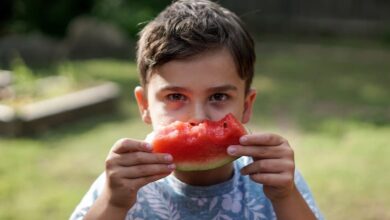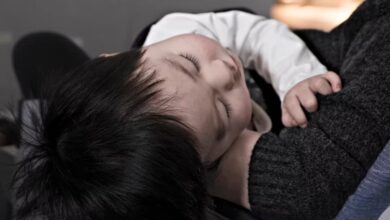Active Kids Sleep Better
Active Kids Sleep Better
According to research in the Archives of Disease in Childhood, children take three more minutes to fall asleep for every hour they are not moving around during the day. According to the study, kids who sleep more quickly also sleep longer, and 16% of parents of school-aged children say that their child has trouble falling asleep.
According to the parents, about one in ten of the kids had trouble falling asleep fast on a regular basis. It took those kids about 15.5 minutes longer to fall asleep.
The children who were more physically engaged during the day dozed off faster than their sedentary peers. The more vigorous activity they did, the more quickly they fell asleep. Additionally, sleep latency increased by three minutes for each hour of the day that was spent in sedentary activity.
Longer sleep duration was also linked to shorter sleep latency. For every hour more spent sleeping, it decreased by more than 11 minutes. The likelihood that a kid will sleep peacefully will rise if they engage in lots of physical exercises. Kids should be physically active for fitness, cardiovascular health, weight control, and sound sleep.

Physical Activity Improves Sleeping Patterns in Kids
Physical activity and a healthy diet are essential for a child’s performance and growth development, but usually, we need to pay more attention to sleep. The amount and quality of sleep that kids receive significantly affect their daily functioning, level of energy, and overall success in academics and athletics. Kids must get the right amount of sleep for their age if you want them to be prepared to perform.
Insufficient sleep in kids and teens is linked to a higher risk of obesity, diabetes, accidents, poor mental health, attention and behavior issues, and poor academic performance.
While poor sleep habits may make a kid feel too exhausted for physical activity, physical activity may improve poor sleep habits.
Tips to Improve Your Kid’s sleep
Poor sleep habits in kids affect their academic achievement. Additionally, it raises the risk of being overweight and obese. Here are a few tips to help improve your child’s sleep:
- Limit light pollution in their room
- Reduce screen time
- Encourage kids to play sports
- Have them do more chores around the house, like vacuuming and dusting
- Cut back on caffeine and sugar
- Keep their room comfortable
- Stick to a routine
Why is it important to get enough sleep?
Although getting enough sleep might not seem like a huge matter, teens who are overtired and lack sleep are more likely to struggle in class, have memory, focus, and motivation problems, and be involved in vehicle accidents and other incidents. Reaction times can be impacted by sleepiness (the want or need to sleep when you shouldn’t) or depression, which can develop into a severe medical issue.

What if Your Kid Regularly Has Trouble Falling Asleep?
Some kids find it difficult to fall asleep on their own and may stay awake for an extended period. Too much screen time before night or the caffeine in soda and energy drinks can lead to this.
- If your kid spends much time watching TV or playing video games, you should limit screen time or take it out of the bedtime routine.
- Don’t let your kid consume any caffeine-containing foods or beverages.
- Before going to bed, try soothing activities like reading, listening to tranquil music, or simply lying in bed with your kid while they talk quietly about their day.
If these reasons aren’t the cause, talk to your doctor about other ways to help your child fall asleep independently.
When Should You Talk to Your doctor?
Loud snoring
If your kid snores loudly regularly, there may be a problem.
Sleepwalking
Sleepwalking is a disorder in which a kid is only partially awake at night. Your child might sit in bed and keep doing the same things, such as wiping their eyes. They might rise from their beds and circle the space. Typically, your child won’t respond when you speak to them. You must make sure the location is secure if your child sleepwalks. Don’t wake your kid as you gently lead them back to bed. Your doctor should be contacted if the issue persists.
Night terrors
Unlike dreams, these are different. Children with night terrors may breathe fast, scream excessively, and appear awake. Your child will probably be bewildered if you wake them up, and it might take them longer to calm down and fall back asleep. Even infants as young as 18 months old are susceptible to night terrors, which often strike children between the ages of 4 and 12. Most kids outgrow them but consult your doctor if they don’t go away.




